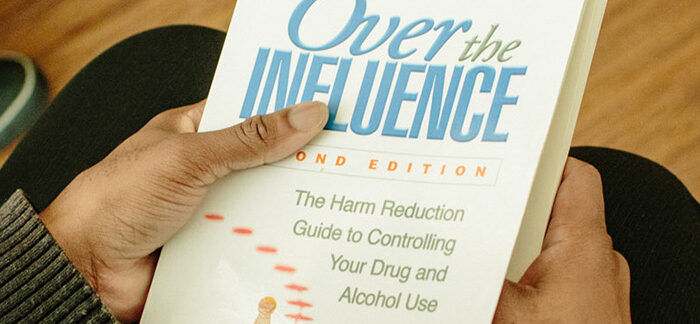Ask A Pharmacist: Alcohol and Medications
The holiday season is filled with good spirits—both the type you can feel and the type you can drink! With end of the year celebrations quickly approaching, people living with HIV—in addition to people taking medication for other conditions—may wonder how alcohol affects their health and how it might interact with their medications. Here, I’ll highlight some things to look out for if you’re taking medications and plan on drinking, so that you can raise your glass in celebration with friends, family, and loved ones without worry.
About half of American adults report drinking on a regular basis—which we know can be beneficial if it’s done in moderation. Observational studies have pointed to benefits such as lowered risk of cardiovascular disease and better brain functioning in later years. On the other hand, excessive drinking increases risk of liver disease, high blood pressure, diabetes, stroke and many other health conditions.
For most people, having some alcohol is usually okay, but heavy drinking can be harmful. And we define heavy drinking as, for women, having three or more drinks per day, or more than seven drinks per week. For men, heavy drinking means having four or more drinks per day or more than 14 drinks per week. Binge drinking—when a larger quantity of alcohol is consumed in a short period of time—can also be harmful.
But what about drinking when you’re taking medications? Is moderation still the key?
This is one of the most common questions pharmacists get asked. And it’s a great question—it’s always important to know how alcohol may interact with the medications you’re taking since many medications don’t mix well with alcohol. Alcohol can interfere with the way your body processes medications, change how medications work in your body, or create or make side effects worse.
The good news is that there really aren’t many direct effects of alcohol on how HIV medications are processed by your body—so drinking in moderation is usually okay if you’re taking antiretrovirals. That being said, there are a few things to be aware of if you’re drinking more heavily.
Drinking alcohol increases the availability of abacavir (Ziagen, also contained in Trizivir, Epzicom, and Combivir) in your body by about 41%. This is not a big enough increase to require a lower abacavir dose—but it does mean you’re more likely to experience abacavir-related side effects. So you should watch out for increased nausea or headache and be sure to report these to your doctor if you experience them.
Heavy alcohol use with non-nucleoside reverse transcriptase inhibitors and protease inhibitors can cause hepatotoxicity (liver inflammation). Heavy alcohol use while taking didanosine (Videx) or stavudine (Zerit) can also cause or worsen peripheral neuropathy (nerve damage that causes tingling or pain in the limbs). If you’re taking one of these medications, be sure to check in regularly with your doctor about how much and how often you drink.
Having an occasional cocktail while taking HIV antiretrovirals usually will not cause problems, but there are many other medications that can be harmful when mixed with alcohol.
Drinking alcohol if you’re taking an over-the-counter cough, cold, or allergy medicine like Benadryl, Zyrtec, or Robitussin can make you feel more drowsy, dizzy, or sedated. There really isn’t a hard and fast rule about how long to wait after taking one of these medications before having a drink. That’s because each of these medicines lasts a different amount of time in the body, and each person may feel a different amount of drowsiness from them. The best thing to do in in this situation is to ask your community pharmacist for advice. He or she will be able to give you individualized guidance based on the medication you’re taking, your weight, and your gender.
Taking the pain medications oxycodone or Vicodin, the anxiety medications Klonopin and Ativan, or the muscle relaxer Flexeril before or after you drink can be really dangerous. These meds will increase the depressant effects of alcohol—slowing your breathing, making you drowsy, and worsening your muscle control. If possible, avoid alcohol altogether if you are taking any of these medicines.
The over-the-counter medication acetaminophen (Tylenol) can cause really serious problems if it’s used in the wrong way with alcohol. Since this is such a common medication (and likely, one that most people have in their medicine cabinet) it’s important to understand the circumstances when it can cause health concerns.
You also shouldn’t take acetaminophen (Tylenol) on a regular basis if you drink alcohol regularly. Both alcohol and acetaminophen, separately, can harm your liver when used frequently over a long period of time. But the combined effects of acetaminophen and alcohol can be even worse—for your liver and for your kidneys. If you drink alcohol regularly, use another over-the-counter painkiller like ibuprofen, or use acetaminophen sparingly. Or, if you’re taking acetaminophen on a regular basis for chronic pain, you should try to limit your alcohol use to an occasional glass. Remember, unless your doctor tells you otherwise, you should not be taking any more than 3000 mg of acetaminophen per day, or 2000 mg if you have liver disease.
If you’re diabetic, drinking alcohol may produce very low blood sugar levels up to six or eight hours later. This can add to the blood sugar-lowering effects of diabetes medications like glyburide or glipizide—making you feel dizzy, weak, shaky, and tired. Drinking large amounts of alcohol if you’re diabetic and taking these medicines may cause your blood sugar levels to drop dramatically, leading to a serious condition called ketoacidosis. This means you should drink alcohol only in moderation and carry snacks and your blood sugar monitor with you.
Many high blood pressure medications such as metoprolol, benazepril, and amlodipine may make you feel dizzy or drowsy if you drink alcohol. There’s also a risk of fainting associated with alcohol use and these medications.
Monoamine oxidase inhibitors (MAOIs) such as phenylzine, prescribed for depression, don’t interact well with alcohol. If you’re taking an MAOI and drinking alcohol, there’s a risk that you could experience a hypertensive crisis—when blood pressure rises to dangerous levels. This is a very serious condition that requires immediate, emergency medical treatment.
While these are the most common medications people take that interact with alcohol, this list is not comprehensive. So, if you have questions about your medications and how they mix with alcohol, it’s best to check in with your doctor and your pharmacist. Knowing ahead of time how your meds will interact with alcohol will help you enjoy your holiday parties while taking care of your health.
Selected References
Barve S., Kapoor R., Moghe A., and others. Focus on the Liver: Alcohol Use, Highly Active Antiretroviral Therapy, and Liver Disease in HIV-Infected Patients.
Brown J.L. and others. Interventions to reduce alcohol use among HIV-Infected individuals: A review and critique of the literature. Current HIV/AIDS Reports 10(4): 356-370. August 30, 2013.
Hendershot C.S. and others. Alcohol use and antiretroviral adherence: Review and meta-analysis. Journal of Acquired Immune Deficiency Syndrome 52(2): 180-202. October 1, 2009.
National Institute on Alcohol Abuse and Alcoholism. Harmful interactions: Mixing alcohol with medicines.
U.S. Department of Agriculture and U.S. Department of Health and Human Services. Dietary Guidelines for Americans 2010.










